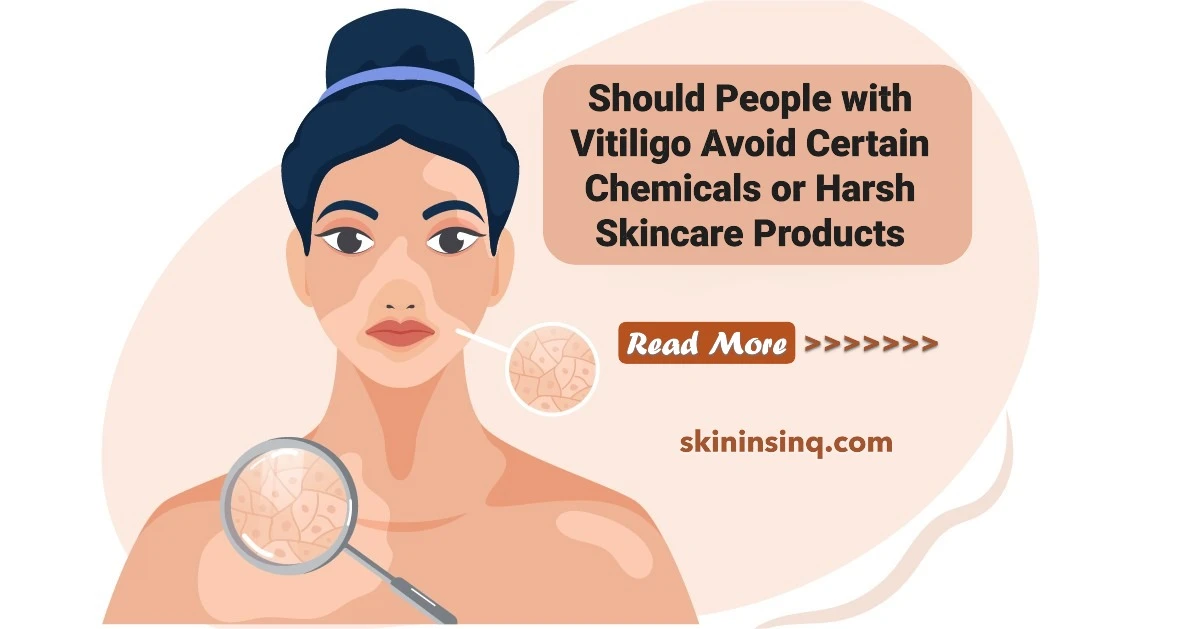Should People with Vitiligo Avoid Certain Chemicals or Harsh Skincare Products? Protecting Sensitive Depigmented Skin
Should People with Vitiligo Avoid Certain Chemicals or Harsh Skincare Products? Protecting Sensitive Depigmented Skin
Vitiligo is a chronic skin condition characterized by the loss of melanin, the pigment that gives skin its color. As a result, affected areas of skin become depigmented, often appearing as white patches. These patches tend to be more sensitive than the surrounding skin due to the absence of melanin, which provides protection against environmental stressors like UV radiation. Given this sensitivity, it’s crucial for individuals with vitiligo to be cautious with the skincare products and chemicals they use.
Why Is Skin with Vitiligo More Sensitive?
Melanin not only provides pigment but also acts as a natural defense mechanism against UV rays and certain irritants. In depigmented areas, this protection is lost, making the skin more vulnerable to:
-
Sunburn
-
Irritation
-
Inflammation
-
Allergic reactions
-
Phototoxic responses
This increased vulnerability means that harsh or inappropriate skincare products can aggravate the skin, potentially worsening existing patches or triggering new ones through a phenomenon known as the Koebner effect, where trauma or irritation to the skin can lead to new vitiligo lesions.
Chemicals and Skincare Ingredients to Avoid
While every person’s skin reacts differently, the following ingredients are generally considered risky or too harsh for those with vitiligo:
1. Fragrances and Perfumes
Artificial fragrances are a common cause of allergic reactions and skin sensitivity. Fragrance-free or hypoallergenic products are generally safer choices.
2. Alcohol-Based Products
High concentrations of alcohol (often found in toners and astringents) can dry out the skin, leading to irritation and increased sensitivity in depigmented areas.
3. Hydroquinone (in high concentrations)
Though hydroquinone is a depigmenting agent used to even out skin tone, excessive or inappropriate use may further disrupt pigment balance and irritate the skin.
4. Harsh Exfoliants
Scrubs containing coarse granules or strong acids (like glycolic acid in high percentages) can physically or chemically irritate sensitive skin. Gentle exfoliation with mild ingredients is preferable.
5. Sodium Lauryl Sulfate (SLS)
A foaming agent found in many cleansers and shampoos, SLS can strip the skin of natural oils and cause dryness and irritation.
6. Parabens and Certain Preservatives
While not universally harmful, some preservatives can cause allergic reactions, especially in people with sensitive or compromised skin barriers.
Choosing the Right Skincare for Vitiligo
To protect depigmented skin, consider the following guidelines:
-
Use gentle, non-comedogenic cleansers with a neutral pH.
-
Apply broad-spectrum sunscreen (SPF 30 or higher) daily, especially on exposed patches.
-
Moisturize regularly with fragrance-free, ceramide-rich creams to maintain the skin barrier.
-
Avoid unnecessary ingredients—look for products with short, simple ingredient lists.
-
Do patch tests before trying new products to check for sensitivity.
Final Thoughts
People with vitiligo should be cautious with skincare choices due to the increased sensitivity of depigmented skin. Avoiding harsh chemicals, irritants, and unnecessary additives can help prevent inflammation and protect the skin from further damage. A gentle, protective skincare routine combined with medical guidance can go a long way in managing vitiligo and supporting overall skin health. Always consult a dermatologist before starting or changing skincare products, especially if you notice irritation or new patches forming.

Related Blog
What Causes Oily Skin and Can It Be Managed Naturally? Exploring Root Causes and Gentle Solutions
Aug 2, 2025 by Admin
General
What Are the Signs That You Have Sensitive Skin? Key Symptoms to Help You Identify This Delicate Skin Type
Aug 1, 2025 by Admin
General